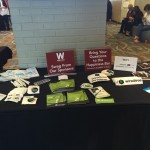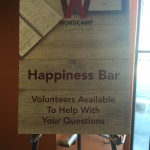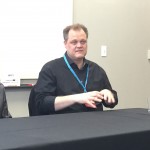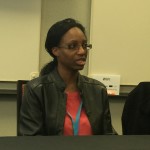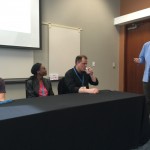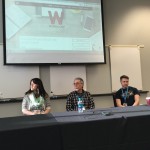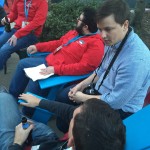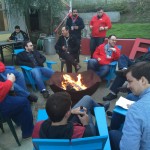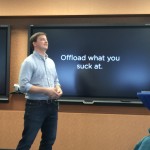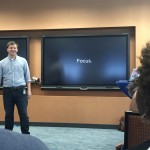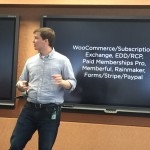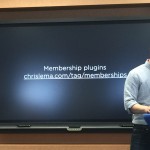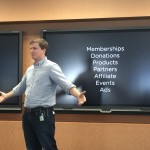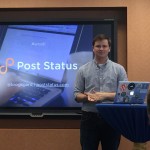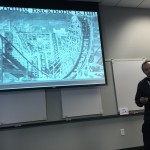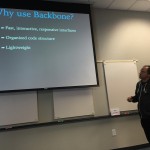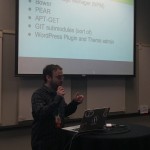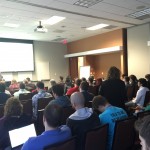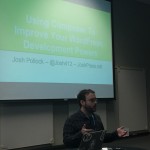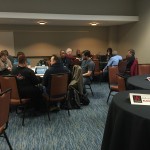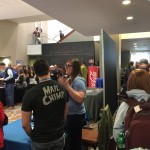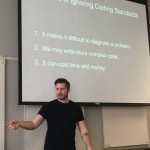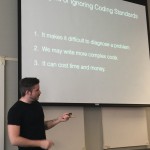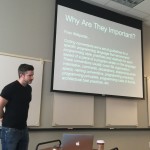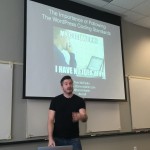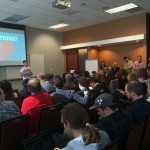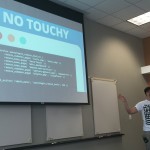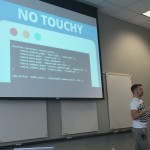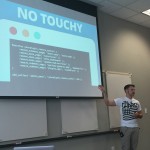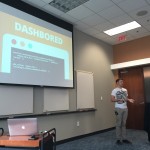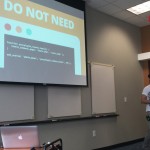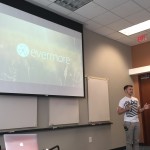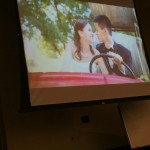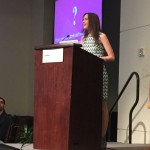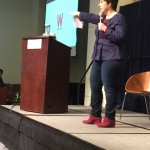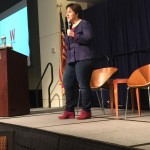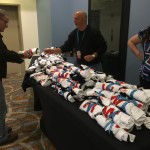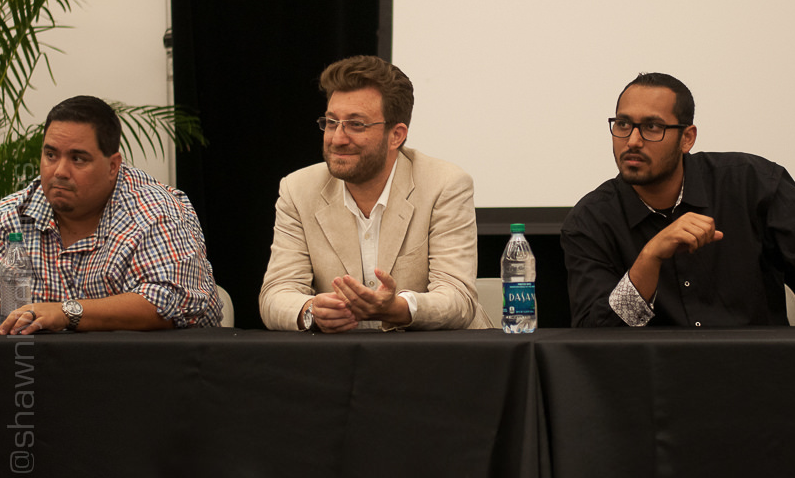Category: WordCamps
Going The Extra Mile For Conference Speakers
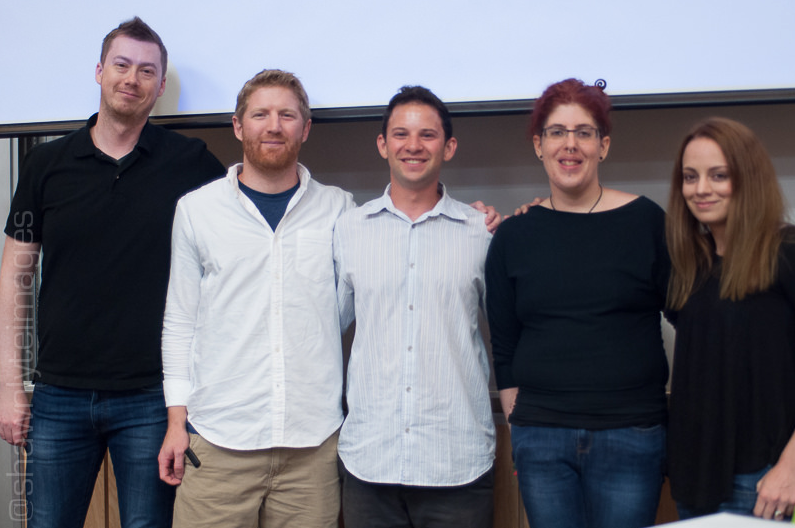
Recently i had some conversations about how conferences treat their speakers and volunteers. Most of the people – who were either speakers themselves or organizers – agree that the vast majority of all the tech conference they’ve seen treat speakers well. Very few (out of the dozens i’ve attended, maybe one or two) may could have given speakers more attention – either because of inexperience or because of planning problems.
All conference organizers – whether they have paid for their speakers, covered their travel expenses, or (as in the case of community conferences) have had speakers volunteer – usually treat their speakers very well. But I’ve gathered some suggestions that might make them REALLY feel special – and it usually doesn’t cost much or anything at all.
- Have a dedicated speaker coordinators during the event. Probably a no-brainer since you have someone BEFORE the event accepting applications and communicating with the speakers – but making their lives easier by having one (or sometimes two, if it’s a big conference) dedicated volunteers there to greet the speakers in the morning makes speakers feel right at home. Coordinators ensure that speakers speaking in the morning are there a little early (hopefully) and have whatever they need in terms of fuel (coffee, for example) or cords/equipment. Coordinators might want to give out their contact info to speakers prior to the event in case speakers get lost on the way or there’s an emergency (one WordCamp, we had someone stuck in traffic for the day so we needed to move talks around… another speaker vomited that morning so we had to get our backup speaker ready, etc.)
- Don’t make speakers wait for food. I’ve been to many conferences where there are long lines for lunch or crowded seating areas. Usually attendees make due, but it wouldn’t cost anything to give speakers a heads up or a head start to get them early access before the lines or crowds start. We did this at one WordCamp and we got alot of thanks from the speakers (the lines were longer at that WordCamp, something we fixed the following year). Not all speakers will accept the invite, but it’s nice to know you’re thinking of them. It’s the least you could do, and i’ve appreciated it when i was given the courtesy.
- Refreshments. Along the same line as the above suggestion, have some water bottles for attendees available. I usually place a supply in the speaker’s room, near the podium. Have the “Room MC” ensure that the speaker has a bottle of water if they want it
- Giving speakers full information on speaker/VIP dinners. It’s not surprising for medium or larger conferences to have a dinner for the speakers and pay for it. Sometimes smaller conferences aren’t as lucky. Either way, it’s best to give all your speakers the complete scenario prior to them coming down. Not just if the cost is being covered, but what food is being served. Provide gulten-free, vegetation options, etc. if possible. Personally, I would avoid areas that might make some speakers feel uncomfortable (like certain bars and nightclubs).
- Don’t be afraid to check with speakers on spelling of their names on conference programs, posters, and website. Yes, i’ve seen conference speaker’s names and titles spelled incorrectly. It happens. Proofread, but in the past some speakers have appreciated the input or the fact they are seeing their name on something that will be available in print at the event.
- Emails. I personally have speakers on their OWN mailing list (MailChimp) so they get any announcements all at once – quickly and easily. Sending a “Thank You” follow up email (along with a link to ask them to fill out a survey about the experience and the event) is also a great way of showing your appreciation after the conference. I’ve been guilty of sending too many emails, so don’t overdo it.
- Speaker Lounge or Area. Give speakers a quiet area prior to them speaking so they can get their thoughts together and make sure everything is in order (slides, etc.)
- Internet. If you can, provide a private internet connection just for speakers so that the general public internet won’t interfere with their presentation. Sometimes this isn’t possible, but especially if you are at a college, university, or paid conference hall there’s a chance they can provide this.
Take these as only suggestions, but doing these things will lead to speakers feeling THAT much more appreciated. Sometimes organizers are crazy trying to keep the conference going in an organized fashion, but the above tips don’t really take that much more time or cost.
Any easy or low-cost suggestions and reminders for organizers that could help them further show their appreciation to their speakers?
WordCamp Miami 2015: Sessions & Tracks

We have a lot of new things, refinements, and classic traditions planned for WordCamp Miami 2015 on May 29-31st.
But what has me excited most is our changes to our sessions and our session tracks. We are making some minor refinements (“if it ain’t broke, don’t fix it”) in several key areas. In a few areas, we are hitting a reset button. For a couple of things we’re going to be trying something new and fresh – this is particularly true with a single track. Although this is going to be exciting for attendees, if you are planning to submit an application to speak at WordCamp Miami this year, you might want to give this a careful read.
(Please note that plans can change, with some details in flux due to venue and personal confirmations… and everything below is my viewpoints only and not representative of anyone else).
Quick Look At Session Highlights of 2014
Before we talk about 2015, I just wanted to mention some of my personal highlights of last year in terms of speakers and sessions.
-WordCamp Miami’s first-time podcast panel with the top podcasters represented: Dradcast, WordPress Weekly, WP Girlie Show, Apply Filters, and Matt Report.
– Business of WordPress panel with Syed Balkhi, Cory Miller, Carl Hancock, and Karim Marucchi.
– BuddyCamp Miami 2014
– 14 year old Anna Tuttle giving an awesome presentation on Saturday. Read her description about her experience.
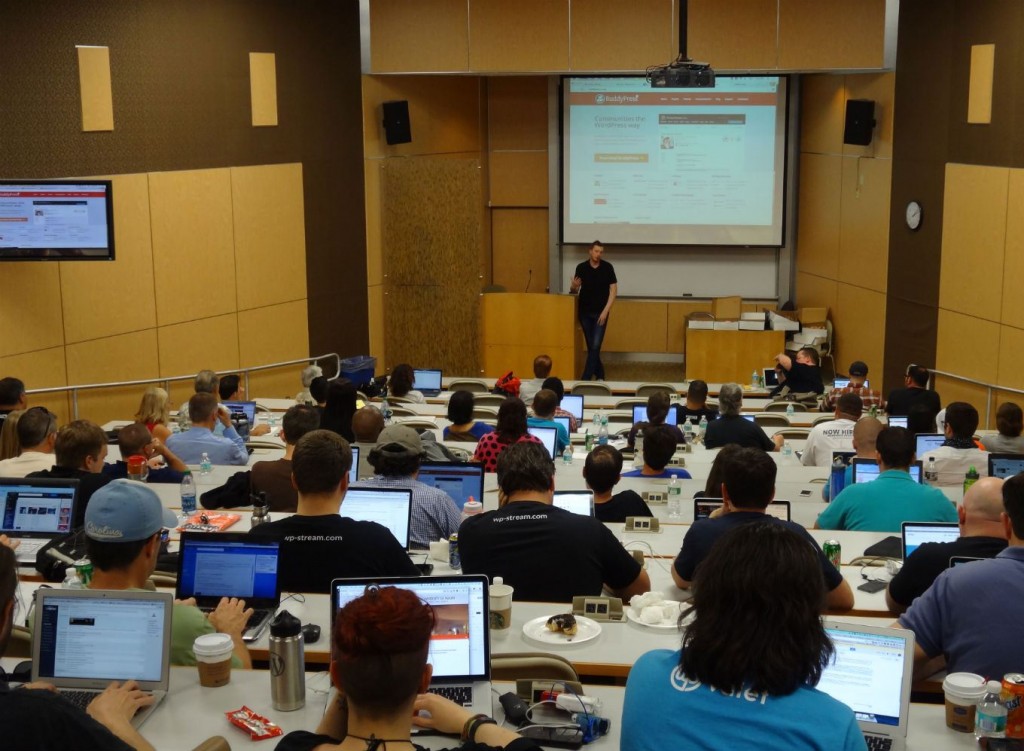
“How To” Track
This year we will be adding a new format of a track we are calling “how to”. This track will be focused on users walking into the room and walking out in that same hour with actionable insights and knowledge. Although there will be abstract and motivational talks at WordCamp Miami, they really won’t be in this track. This track will focus on getting things done – a mini-workshop with step by step instructions… steps you can go home that night and do hopefully on your own. Experienced speakers will be hand selected and slides will be formatted in such a way where users can use them as a resource. Additional techniques and technologies will be used, and we will share with you more about this as we get closer to the event.
One session in this track, as an example, might be focused on installing and using “Google Analytics on your WordPress blog”. An attendee will walk into the room knowing almost nothing about analytics… and walking out with knowledge and materials to be able to install and use the basic settings of that plugin on their own (perhaps even going into another room and trying it right at the conference or heading toward the happiness bar if they need further assistance). Session topics will be deliberately small in scope, but just the right size so an attendee can leave WordCamp that day saying to themselves “I know now how to do X” with physical materials they can refer to (and being able to follow up on that knowledge with the local WordPress meetups).
It sounds simplistic and maybe obvious when it’s put into words like the above, but we can’t wait to show it in action. I’m describing it here for the benefit for those who might want to participate and submit speaker applications. Once we have things in place, there will be a few surprises that will make it more interactive and instructional for the attendees and speakers. You’ll just have to be there to find out what we REALLY have planned.

Developer Topics
WordCamp Miami has always had a developer track on it’s main day – but primarily presenting talks meant (more or less) for general developer audiences. Which makes sense – WordCamps tend to attract all kinds of developers with various levels of experience. Wouldn’t it be great for developers if they actually got into some deeper topics? How about more insight into PHP and other topics maybe not directly related to WordPress? We are going to make such pushes for developers this year. And we have some nice things in early planning that I think you’ll like.
What’s more important – we think Miami is ready for more serious developer talks and conferences. According to feedback from local meetups and other sources, more and more advanced topics are being desired (and less of the very early or beginning level topics).
If you are a developer, WordCamp Miami would love to see topics that you are passionate about even if it doesn’t pertain to a wide variety of developers. Expert topics wanted.
We are also looking for general PHP developers – not necessarily strict WordPress developers.
Hallway Tracks
We’ve decided to officially unofficially welcome networking/hallway tracks into WordCamp Miami. More on this soon, but don’t worry about applying for these with speaker applications.
We Mean Business
Business talks will be back this year, but we will be aiming toward providing those in attendance with knowledge, slides, videos, documents, and links for many talks. Materials one can take home or to work the next day and start using. Think more “this is what you need and how you do it” format than anything else. Also, don’t think a schedule of random tracks… think more of this being a cohesive plan from beginning to end (you don’t want to miss any early sessions).
Kids: Workshops and Beyond
Our WordCamp for Kids last year was a first for us and a HUGE success (read the highlights here). Except it back this year based on demand, but we are also bringing something else for young ones to WordCamp Miami 2015. One of our biggest goals at WCMIA is diversity – and diversity includes young ones. They are the next generation of bloggers, developers, and coders.
What we got planned currently is going to knock your socks off.
BuddyCamp Miami III
The third BuddyCamp Miami was announced already for May 29th – we couldn’t wait. We hope to have a solid speaker lineup this year. And to go along with our developer topics mention, it looks like this year’s BuddyCamp Miami might be more developer focused and have a more limited attendee maximum than previous years. We really don’t want people just to come and listen to talks, but actually CHAT with developers and contributors one-on-one to learn and improve their development and design skills with BuddyPress and bbPress. So speakers: be warned!
Speakers: Sign Up
I hope the above has gotten you a little bit excited (or at least curious) about what we are planning in May. To make any of this a success, we are going to need the help and support of a number of people – some experienced speakers, and others that will be speaking for the first time. If you have a desire to speak about ANY subject this year, please reach out to us. WordCamp Miami is a great environment for those wanting to speak at their first WordCamp.
Organizing a Conference With Slack

With WordCamp Miami 2015 announced (for May 29-31) and underway, I decided to try out Slack as a way of organizating the planning committee, volunteers, and other parties for the event. If you don’t know what Slack is, I suggest you check it out. In a nutshell, it’s a group chat application on steroids and it’s had incredible growth in the past year as they have recently reported. The WordPress project is testing out Slack as their main real-time communication platform (replacing IRC), and so far (from what i can tell) it’s an overall success.
In the past few WordCamps and conferences I’ve done, I’ve tried various methods:
– Google Docs
– Basecamp
– Plain ‘old Email
– Skype
– Smoke Signals
The main problem was that of overload – too many notifications or too much in emails. People were missing emails or getting overwhelmed with tidal waves of information, some of which didn’t apply to them. This made it hard to respond in a timely manner.
Private Organizer Groups in Slack
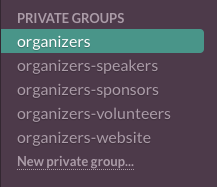 Slack’s use of private channels allows us to create a central “organizer” channel where those on the planning committee can have a conversation with other committee members, showing off recommendations for after party locations, speaker/VIP dinner plans, and other information that we want the committee to have a chance to review and comment on. It’s our main pipeline of information.
Slack’s use of private channels allows us to create a central “organizer” channel where those on the planning committee can have a conversation with other committee members, showing off recommendations for after party locations, speaker/VIP dinner plans, and other information that we want the committee to have a chance to review and comment on. It’s our main pipeline of information.
But we’ve also created “sub-channels” for specific subjects – like sponsorship discussion and discussion of our website CSS/design – so that people aren’t flooded with this information and can join these as they are interested. Our committee members don’t know everything about everything… that’s unrealistic. The important items are discussed or shown in the main channel, and committee members choose to follow what they want to follow (especially if that’s part of their job description).
Speaker Channels
When speakers have been selected for the conference and have accepted our confirmation, we will be sending them an invite for a private group. So all our speakers will have their own private “lounge” to talk with other speakers – perhaps just to be a little social, but we are hoping that if some topics overlap (such as sometimes the case in beginner’s workshops or certain tracks) that they can work together to ensure the best experience for the attendees.
The private channel also gives the organizers the ability to submit timely updates and reminders (such as deadline reminders – or if we wanted to review slides, etc.) We send such announcements via a dedicated newsletter (via MailChimp) to the speakers as well, but we are hoping the real-time communication helps with some of those who might have questions… especially first time speakers.
Sponsors & Volunteer Channels
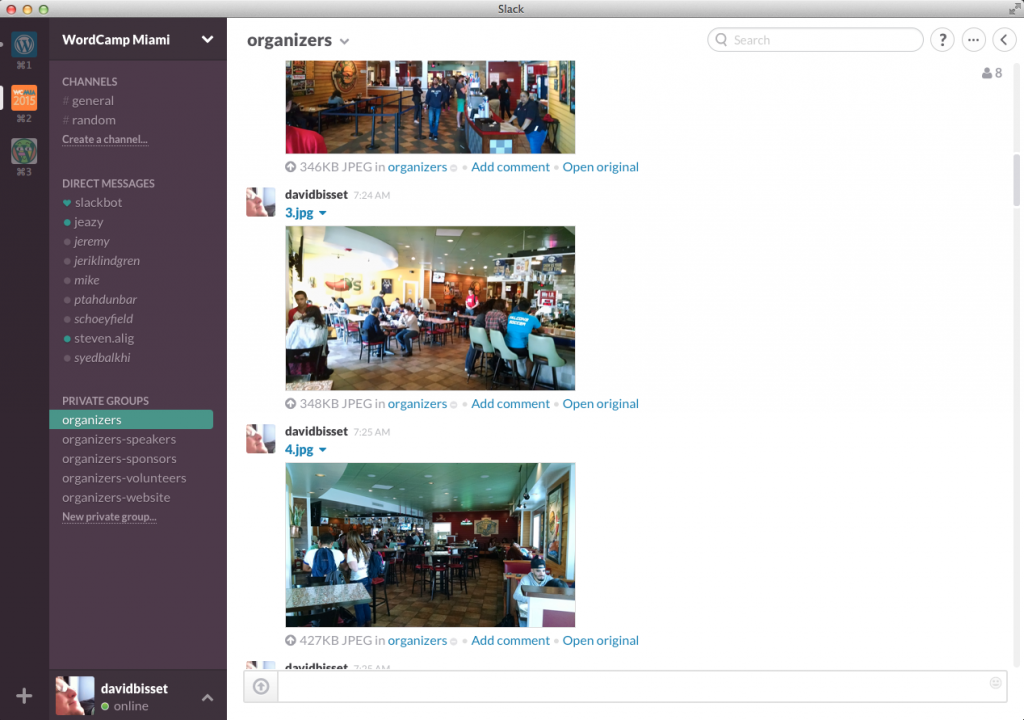
Just like we do with speakers, we will be opening up private channels for sponsors and confirmed volunteers. For sponsors, this gives them a direct line to us (with our sponsorship coordinator monitoring the channel, as well as email) as well as another channel for reminders (“we need your logo”). If there are pressing concerns, we handle these one-on-one privately via Slack direct messaging or email. Most sponsors are busy and probably will stick to email, so we will see how much this is used.
A dedicated channel for volunteers is a no-brainer. Our volunteer coordinator will monitor this and as the conference gets closer, this will be a great pipeline for the most updated information (especially in the last few weeks). We will be storing links to the google doc that shows the assignments for the volunteers, and responding to last minute questions. For those choosing not to use Slack, we will be sending summary reports via mailing lists (again, using MailChimp we ask volunteers to signup with a volunteer form thus automatically adding them to the mailing list).
Public Channels
Closer to the event, we plan on opening a public channel so that the generic public can use Slack to communicate with us and other attendees. We are still working out details on this exactly… perhaps breaking up channels into days or workshops so those monitoring these channels aren’t overwhelmed. We do have some great ideas though for using Slack potentially as part of the conferences, and if that comes to light i’ll share that information with you.
It’s also important to communicate to those using Slack that we will not be monitoring the rooms closely during the conference, depending on how things go. For communicating and getting real-live feedback during the conference itself, we are prone to use another tool (see next section).
Weaknesses
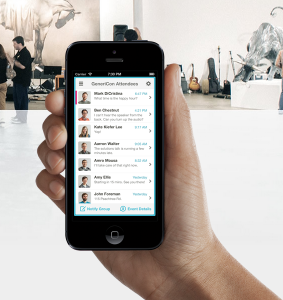 While Slack is going well, for conference organization – at least for the needs of the conferences i help organize, it has limits. Primarily Slack is a bit overwhelming for DURING conferences for most organizers and volunteers. For WordCamp Miami and similar conferences – the majority of organizers and volunteers aren’t as “tech savvy” as you might think. Or to put it another way as I have been told “we don’t like to multi-task, but we’re forced to”. The nature of Slack, it’s structure, and the UI of the mobile application can make things complicated if you are getting pings from more than one person or trying to monitor more than one things at a time.
While Slack is going well, for conference organization – at least for the needs of the conferences i help organize, it has limits. Primarily Slack is a bit overwhelming for DURING conferences for most organizers and volunteers. For WordCamp Miami and similar conferences – the majority of organizers and volunteers aren’t as “tech savvy” as you might think. Or to put it another way as I have been told “we don’t like to multi-task, but we’re forced to”. The nature of Slack, it’s structure, and the UI of the mobile application can make things complicated if you are getting pings from more than one person or trying to monitor more than one things at a time.
To broadcast messages to attendees, to communicate with volunteers via mobile, and to have private chats or send emergency alerts to fellow organizers… we have used Gather by MailChimp in the past. For the past 2 years, it’s served as well – primarily of it’s easy ability for anyone to signup (people give MailChimp – not the conference organizers – their phone number for SMS messages, and that phone number is removed by MailChimp after the conference is over). In our experience, non-tech savvy folks prefer this kind of one-way or two-way via SMS communication. I suggest that you haven’t checked it out and need a good “on site” organization tool, give it a good look. While it’s not something I would use for pre-conference planning, it’s a good “group SMS” type of tool when you are running around like chicken with your head cut off.
So far, so good
Overall, Slack has been working well for conference organization. I’m welcoming feedback and observing how others are using it to better our process now and in the future. This might be the first method we keep using for consecutive years.
Planning WordCamp Miami 2015

WordCamp Miami 2015 dates were announced officially yesterday, and it’s happening on May 29th-31st. As one of the organizers of WCMIA i’m planning on sharing my thoughts more about it’s organization, planning, and my general thoughts going forward. Although i’ve written a few blog posts on WordCamp organization in the past, I feel like maybe someone else might be able to learn from what we do right OR WRONG this year.
How Do You Top Last Year?
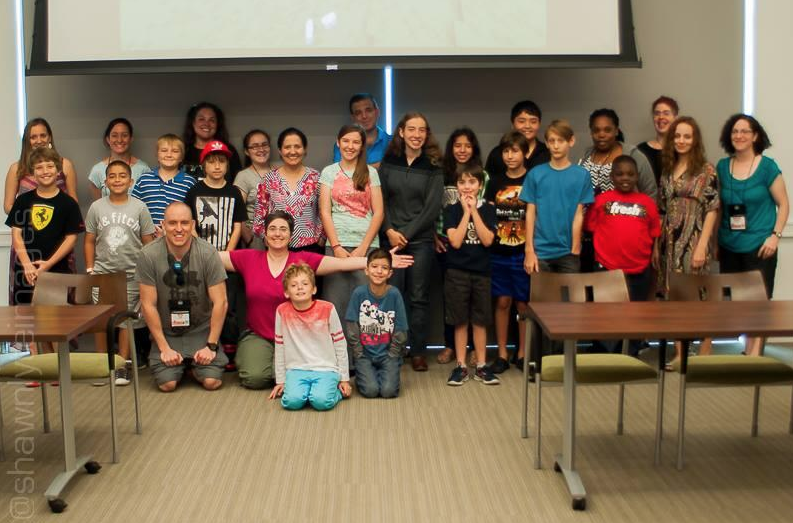
Sounds like a stupid question, but it’s one that you can catch yourself asking OR even get asked by others. I thought last year was our best one yet (it was certainly the largest, with our official attendee count about 770) but of course i’m biased. The HONEST response to that of course is that you don’t try – at least not directly. I personally don’t try to outdo myself or events, but constantly try to new things. I iterate things that seemed to have worked well. This helps WordCamp Miami to stay fresh and not be a carbon-copy of other events and conferences. I think anyone who runs a conference – especially a WordCamp – strives on some level to have a unique conference, even as that conference should be primarily focused on the local needs of the community.
Being unique doesn’t take much, and maybe I can write another post about my thoughts on that.
What’s We Are Planning This Year
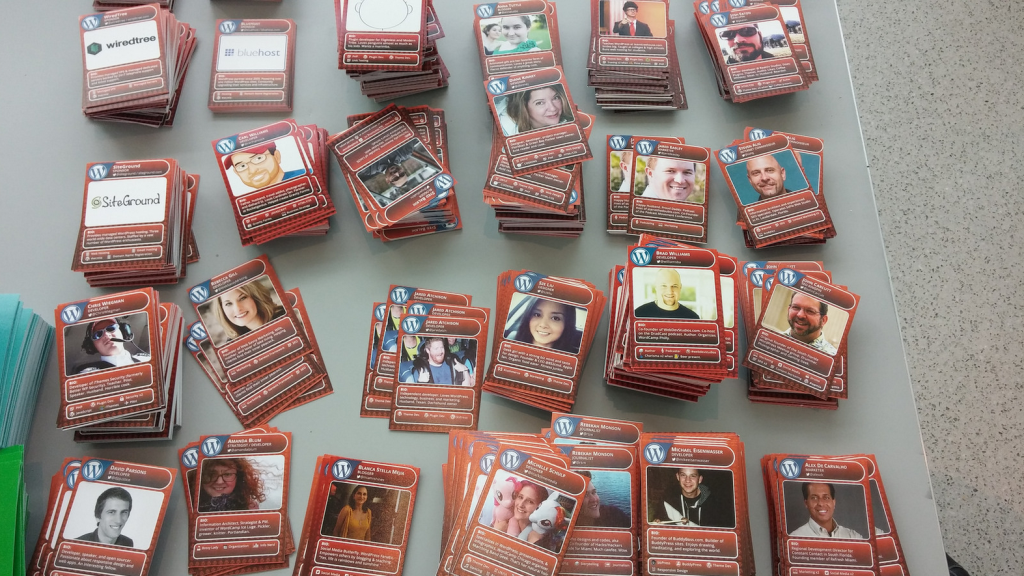
Here’s a few things we’re thinking about:
– We are planning on changing up session formats a little bit. Not giving alot of details at the moment, because it’s still being hammered out. But we do want to hit the reset button here in some aspects and not have a copy-paste of previous years or from other WordCamps.
– New workshop(s). We want to try adding another workshop or expanding on previous years. A beginner’s workshop in Miami is being planned.
– BuddyCamp Miami 2015 is being considered. John James Jacoby has called Miami the home of BuddyCamp so how can I disappoint him? (Answer: You don’t).
– We have a new venue this year (FIU) which means new locations for after parties and speaker/VIP dinners. No announcements on anything in that department yet.
– We have a particular focus this year on those who normally don’t automatically attend WordCamps, or even tech conferences. According to feedback, networking is one of our BIGGEST reasons people come to WordCamp Miami so we want to get people meeting and talking with others they haven’t met and would like to get to know. This means focusing on the youth, diversity in general, and developers that work outside of WordPress (PHP in general, Drupal, etc.)
– Speaking of the youth, we have alot in the works for teenagers and younger at WCMIA this year. I can’t wait to tell you more, and it goes beyond having a Workshop For Kids on a Sunday.
– This year, we are going to be hiring a professional company for our live streaming and taping of all sessions.
– The event as a whole is going to be more “real time interactive”. That’s about all I can say at the moment, but i’m quite excited about this in particular.
– Ice Cream… maybe? Thoughts?
– Speaker Collector Cards… maybe these are going out of style? We’ve done them for the past two years. Leave a comment if you have thoughts.
– I would like to see a serious discussion about the future of WordPress. It’s been an active topic especially over the last few months. An overall positive discussion with both good and negatives discussed, with people involved that the community respects.

Developers. Developers. Developers
I think it’s time WordCamps start to dive deeper into “heavier” development talks. It’s hard to do this at WordCamps generally speaking (unless it’s a WordCamp meant just for developers) because you have a wide audience of developers with various skill levels. I think this is, in part, why LoopConf is happening (and why I think that it will be a success and be a good example of a non-WordCamp conference).
I personally would love to see topics beyond beginner-level focused on the WordPress REST API (great post here covering the basics on that from PostStatus) or Backbone.
So we are looking at creating a special experience for developers at WordCamp Miami, and will soon be polling some specific individuals in the WordPress community.
Pre-Conference Surveys / Reverse Call For Speakers
Surveys before you open a call for speakers have been a staple for WordCamp Miami for years. Because WordCamps are primarily local community events, they help you focus on what particular subjects your potential audience would like to see.
This is our survey for WordCamp Miami 2015. Please give your thoughts, even if you are just thinking of attending WCMIA this year (and thanks to Aaron Jorbin for some guidance on this from a past reverse call for speakers he had done).
Moving Forward
WordCamp Miami is just getting started, but we’ve made alot of announcements this week already. Sponsors and potential speakers are already reaching out. Our site will be updated visually later this month. We will be calling for speakers as early as next week, although if you are interested please read the information already on the site… and remember EVERYONE has a story and I would love to see new and interesting speakers this year.
More updates to come!
What Would You Like For Me To Talk About Regarding Planning WCMIA?
Please leave a note in the comments!

